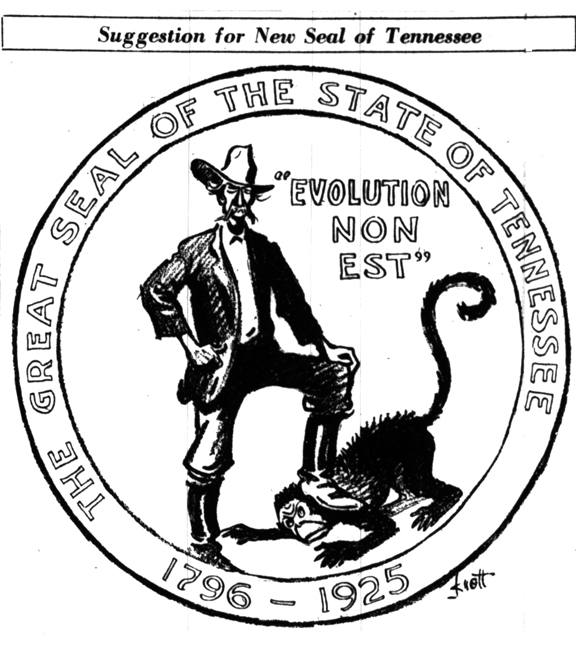Over the last few years, atomic scientists have created four new elements, and they all need names. The International Union of Pure and Applied Chemistry has announced the proposed name for the elements: nihonium, moscovium, tennessine, and oganesson (honoring, respectively, Japan, Moscow, Tennessee, and element discoverer Yuri Oganessian).
Atomic physics isn’t my area of expertise, so I would normally take only passing note of these proposed names.
I do, however, know a few things about Tennessee. And while the state’s Oak Ridge National Laboratory has a distinguished history in atomic physics research, helping to discover more than its share of new elements, the state of Tennessee has a more complicated history with science. Setting aside the Butler Act and Scopes trial (which predated the atomic revolution), there’s the nontrivial matter of the antiscience legislation that remains on the books. The law, derided as a new “monkey law” when it was being debated in 2010, alleges that topics such as evolution and climate change “cause debate and disputation,” and makes it hard to stop students or teachers from disrupting schools with scientifically unwarranted attacks on those established sciences.
Given that messy history, I wonder if there aren’t better ways to honor the remarkable legacy of atomic science in Tennessee. Perhaps something specific to Oak Ridge would be appropriate? “Quercine” (symbol Q) would not only honor the mighty oak (quercus in Latin), but introduce the first official q into the periodic table!
Or perhaps it might be a chance to honor the many unsung female heroes of the Manhattan Project. Again, this isn’t my field, so there may be superior candidates, but it seems like Kay Way might be worth honoring with “kaywayine” (Kw). Katherine (“Kay”) Way was, as historian Alex Wellerstein (a former NCSE intern, by the way!) explains, “one of the rare few scientists whose work took her to all of the major Manhattan Project sites,” including a long stint at Oak Ridge. Her computations helped lay the groundwork for the first nuclear chain reaction at the University of Chicago, and after the war she created the Nuclear Data Project to consolidate data on nuclear physics for the broader research community. She was also an advocate against nuclear war, co-editing the best-selling One World or None: A Report to the Public on the Full Meaning of the Atomic Bomb, containing essays by Einstein, Bohr, Oppenheimer, and others. Way worked at Oak Ridge from 1945 to 1949, and returned from 1964 to 1968, when she departed for North Carolina, where she remained until her death in 1995. Her biography seems to have been a major influence on the fictional character Helen Prins in WGN’s Manhattan .
Those, or many other possible options, would honor the tremendous scientific legacy of Tennessee, without granting a tremendous scientific honor to a state that recently enacted a dismayingly retrograde law undermining the integrity of science education.
Comments on the new elements’ names can be submitted to IUPAC until November 8, 2016.

 Image via
Image via 